On becoming a group leader: Rita Mateus, TU Dresden and Max Planck Institute of Molecular Cell Biology and Genetics, Germany

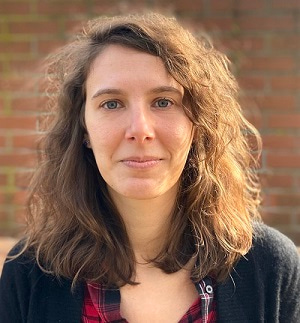 Rita Mateus is a Portuguese scientist and new Research Group Leader, jointly between the Cluster of Excellence Physics of Life (PoL) at the TU Dresden and the Max Planck Institute of Molecular Cell Biology and Genetics (MPI-CBG), with tenure track to a TU Dresden Professorship. She is the first Dresden Concept Research Group Leader, a program spearing cooperation and alliance between institutions in the Dresden Scientific Community.
Rita Mateus is a Portuguese scientist and new Research Group Leader, jointly between the Cluster of Excellence Physics of Life (PoL) at the TU Dresden and the Max Planck Institute of Molecular Cell Biology and Genetics (MPI-CBG), with tenure track to a TU Dresden Professorship. She is the first Dresden Concept Research Group Leader, a program spearing cooperation and alliance between institutions in the Dresden Scientific Community.
What does your research focus on?
Research in our group focuses on understanding growth and shape across different length scales: from organ down to organelle. To form an adult body with a given morphology, the size of an organism crosses many orders of magnitude. Its underlying tissues and cells mediate how much and how fast growth will occur: growth needs to be started, stopped and shaped, at the right time and place. How do organs (and underlying cells) measure and control their size? Control of growth rates entails precision, one of the least understood features of Biology. We aim to understand this by studying different biophysical modes of cellular communication.
In the lab, we are investigating growth and shape acquisition in two very different quantitative settings, while using the zebrafish larva as a model organism. On one hand, we are interested in studying how organs grow and re-grow – for this, we are focused on pectoral fin development and regeneration, which occurs successfully in lower vertebrates and, in a particularly efficient manner, in the zebrafish larva. On the other hand, we are studying the process of organelle biogenesis, focusing on the differentiation of specialized pigment cells of the zebrafish, the iridophores, a cell type that contains organelles that acquire a particularly large size and stereotypic hexagonal shape. These organelles are essential for the cells’ function (the shininess of the zebrafish!) and, due to their morphology, they influence the size and shape of the cells that contain them.
I can see how my research topics may seem very different, but I think it is good to diversify and have many ideas. At the same time, mixing some concepts from physics and chemistry into our biological thinking is really exciting for me, and something that I want the lab to really benefit from.
What steps did you take to realize your dream of becoming a PI? What would be your advice to young scientists who would like to start their own lab?
As many others, I’ve wanted to become a PI since very early on in my research career, despite not knowing fully what the job really entails. Towards the end of my postdoc, I started thinking seriously about it, which led me to decide two things: (1) my main target countries to apply to, and (2) how long I would give myself to keep applying, knowing that chances of getting a position were actually quite small – this allowed me to focus my efforts and be realistic about my research profile.
When I started applying, Germany was my main target country, because it’s a country full of opportunities for a scientist, and I wanted to stay in Europe for personal reasons. I actually started applying without feeling very ready! My postdoc paper was not out yet, but I decided to start putting ideas down into a research statement, once I saw interesting calls that would fit into my research profile. For sure, at the time, this initial proposal was not my best written work; however it allowed me to have a starting draft and mature the ideas over the following months. I think this was a very important decision, so I would say that if your ideas are bold, don’t wait for your proposal to be perfect!!
During the process, I did seek advice from several senior researchers and this was very important and helpful. But the most important aspect for me during the whole application process, which I would really recommend to anyone wanting to become a group leader, is: build a peer network of good friends and colleagues that you can bounce ideas around with. These will be trusting people who ideally are undergoing the same process at the same time as you – not only for the science, but also due to the high levels of anxiety and uncertainty this process entails. Having such a peer support group can help you manage your feelings of failure (as there will always be more rejections than successes), as well as get to know opportunities you might not have heard of. Also, on a personal note, having such a peer group made the whole process way more rewarding, as you get to celebrate everyone’s achievements (small and big) together.
At the end of January 2020, I saw a call from PoL for a joint position with the MPI-CBG. I had no idea exactly how things were going to be, as such a position did not exist before. I saw it as a really exciting opportunity to be part of a new project, allowing you to define an identity and to shape things in a way you imagine. When I passed the final rounds for this position, I was still thinking of applying elsewhere – but once I got the official offer, I stopped, because I realized this would be the ideal place for me to work and establish my lab.
Why is Dresden so special for me? Dresden is a reference community in the Developmental Biology field, while being known for its supportive, collaborative and highly interdisciplinary environment. It was very appealing to me to be in a place where I could not only continue to work in Quantitative Developmental Biology, but also really mix it with Computational Science and Theoretical Physics. With the Max Planck Institute for the Physics of Complex Systems (MPI-PKS), the Center for Systems Biology Dresden (CSBD) and the Center for Regenerative Therapies, Dresden (CRTD) so close, it’s really exciting and an advantage for close collaborations.
Failing is usually inevitable in science. How do you deal with your potential failures and use them to your advantage?
In academia, we do live a in bubble where we don’t really normalize failure, despite it happening very often at all levels. This is something I still struggle with, despite its frequency! I have learned that even if I’m unsuccessful in some type of application (grant, fellowship, etc.), the exercise of having written those ideas down is a very useful one. It is never time lost, as one can then adapt and recycle the text into other proposals. This also allows you to think critically about your work and strive to improve it – it’s about making the most of your ideas instead of discarding them, and just because an evaluation panel did not like them, it doesn’t mean they are not interesting and worth pursuing.
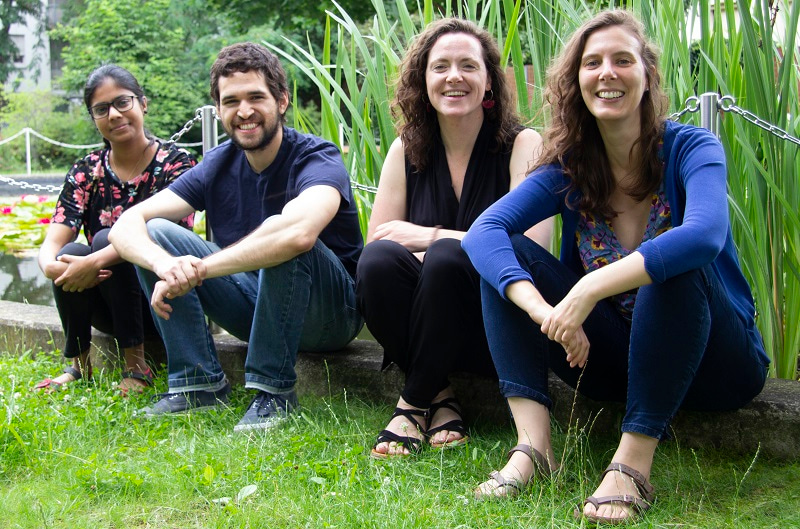
Top post image by sergei akulich from Pixabay
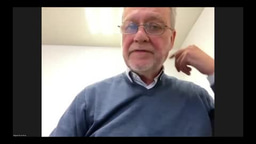


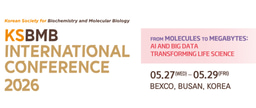
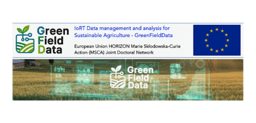
Join the FEBS Network today
Joining the FEBS Network’s molecular life sciences community enables you to access special content on the site, present your profile, 'follow' contributors, 'comment' on and 'like' content, post your own content, and set up a tailored email digest for updates.